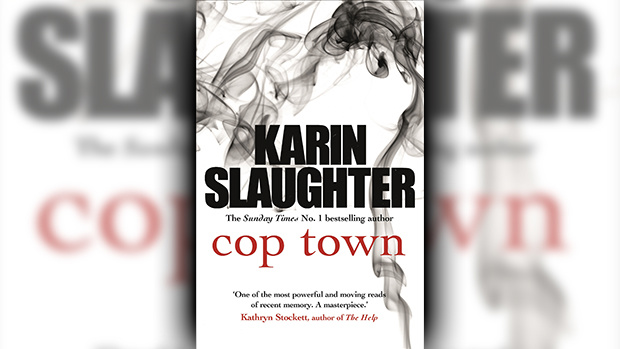Stephanie Jones: Book Review - Cop Town by Karin Slaughter
- Publish Date
- Friday, 11 July 2014, 12:00AM

- Author
- By Stephanie Jones
It’s no fun being female in Karin Slaughter’s gritty, colourful novel of life in the Atlanta Police Department of the early 1970s, Cop Town. At the time one of the most violent cities in the United States, Atlanta is done no favours by the APD, which is peopled mostly with men resembling a “crowd of extras in a Sam Peckinpah movie” who embrace prejudice and chauvinism and indulge in the violence they are tasked with eradicating.
The discord at hand plays out under a heavier shadow: broken GIs flooding back from Vietnam, Nixon’s ignominious departure, the political assassinations of the 1960s, a corrosive sense – galvanized by the Kent State killings and the freeing of William Calley – that justice has a flexible definition.
Within this milieu, Cop Town follows the search for the Atlanta Shooter, a serial killer targeting the Atlanta police force. The action is vivid and bloody, from the opening scene of a cop carrying his fatally-wounded partner through the hostile downtown streets to a shoot-out in a pimp’s hovel in which a female officer takes a knife to the eye – but loses none of her mordant, profane humour in the process.
Indeed, black humour and lashings of profanity are both stock-in-trade and survival mechanism for these operators, as rookie Kate Murphy learns in her first day on the job. The hazing starts before she even shows up, in a uniform far bigger than the measurements she provided, and with a beauty that provokes a response from her new male colleagues that today would launch a thousand lawsuits.
Kate’s only defence is a steely determination not to fail and a modicum of kindness from seasoned officer Maggie Wheeler, who betrays the attitude of those in the force when she advises Kate to wear her uniform for perks like free coffee and groceries: “Anything’s legal if you can get away with it. Welcome to the Atlanta Police Department.”
The core of the Kate-Maggie dichotomy is not their divergent experience but their respective backgrounds. Maggie is from a hard-grafting blue-collar family, and her brother Jimmy is the cop who recently lost his partner (the circumstances of which Kate is suspicious about, given the forensic evidence. She draws enlightening information from a former schoolfriend working in the ER of Grady Hospital, one example of many less-than-licit investigative methods practiced by the APD).
Kate, conversely, is the offspring of intellectuals and professionals and, on encountering the insistent low hum of anti-Semitism in her new work environment, adopts an Irish surname and doesn’t disclose that her mother and grandmother are Holocaust survivors.
That I kept forgetting that Cop Town was about the hunt for a serial killer doesn’t reflect any storytelling shortcomings on Slaughter’s part but rather the mesmeric quality of character and setting and the depth of her plunge into the cultural and social fabric of the APD and its domain. Alcohol is a tool of the job, with even the women imbibing from hip flasks at breakfast. Homophobia is a given, and the feminist movement is a long way from gaining steam. Distrust of authority figures is universal; even the residents of the Atlanta slums reject government assistance. It would only make things worse.
Slaughter has a deserved reputation for crime writing thanks to her stellar Grant County series, and Cop Town, with its incisive portrayal of a dying breed of rule-breakers and the fearless women who challenge them, only enhances her name.
Take your Radio, Podcasts and Music with you

